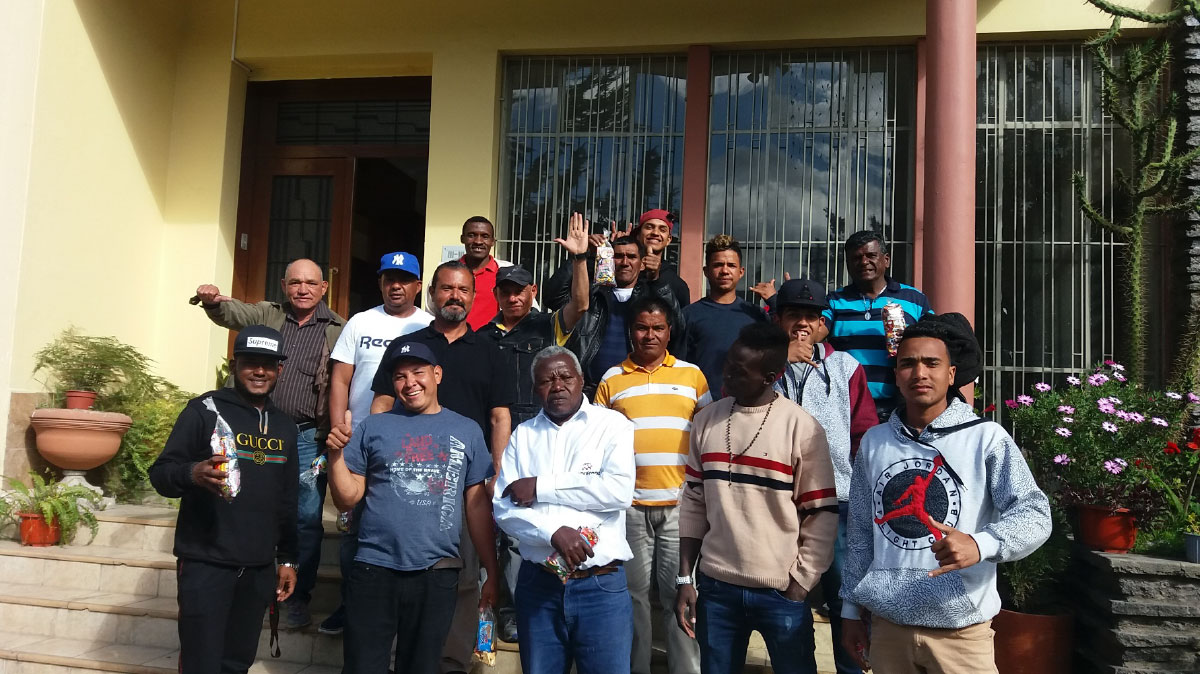
“Sharing the Journey” in Quito helps migrants
The migratory exodus of Venezuelan citizens to almost all Latin American countries, especially to the closest ones, has been in the news for the last few years. According to INEC data, around 400,000 have settled in Ecuador. The working conditions of migrants are very precarious; they are engaged in informal trade, street sales and other unpaid activities that lend themselves to all kinds of exploitation.
The journey from Venezuela to Ecuador, by land, takes at least five days, with all the dangers that such a journey entails, especially for women and children.
Marist response
Faced with this reality, and responding to the calls of the XXII General Chapter to act audaciously in the face of emerging situations, the Marist solidarity of Ecuador has launched the programme SHARING THE JOURNEY, in the city of Quito, Ecuador.
Already more than 200 migrants, in a situation of vulnerability, have been assisted with food, spiritual-psychological accompaniment, training and legal counselling. Although the majority have been Venezuelan citizens, Colombians, Cubans, Haitians and other nationalities have also been welcomed.
On 6 June 2018, the feast of St. Marcellin, the solidarity project of the Province of Norandina was officially inaugurated.
In addition to the management team, the programme is supported by the community, volunteers, fraternities, youth groups, teachers, etc. The collaboration of national institutions committed to the vulnerable population is worth noting.
In times of COVID-19
In these days of pandemic caused by the coronavirus, which is somewhat disastrous for Ecuador, our 32 migrants are complying with the provisions and protective care implemented by the authorities. We have not had any health problems; time is dedicated to work in the gardens, sports, recreation and also to spiritual reflection, almost similar to the first Marist community.
Faced with the health problem that Ecuadorian society is experiencing and its economic consequences, a project called SOLIDARITY COVID has been implemented. With the support of the Marist community and the institutional solidarity teams, more than 300 families in a situation of vulnerability are being cared for with a basic food basket, for two months, which is the minimum time to “stay at home”.
_______
Bro. Mariano Morante M. and the Solidarity Teams
